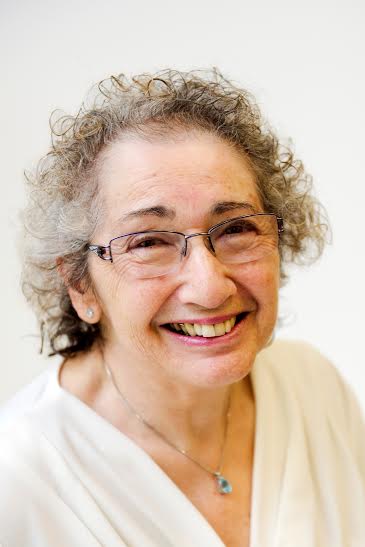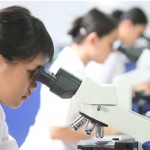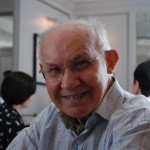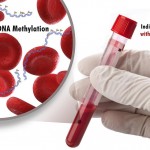Breast cancer is the most common cancer in the UK and every year nearly 55,000 people are diagnosed with this devastating disease. Breast Cancer Care talks to people every day about their lives with breast cancer, the ups and downs, the difficult times and the many happy moments. So we know there’s more to breast cancer than people might realise.
This October, Breast Cancer Care’s #hiddeneffects campaign will tell the real story of what it is like to live with breast cancer. From the lesser known side effects of treatment, the impact on family life and relationships, to the daily fear of cancer returning, breast cancer changes everything.
When we think of breast cancer and its treatment we often think of the visible signs such as hair loss and how this might affect a person’s self image. But what can be just as profound are the effects of treatment which are hidden. The hidden effects of a breast cancer diagnosis can include exposing scars when swimming, the impact on your relationships and the side effects of hormone therapy to name but a few. These hidden effects are often very personal and their consequences often affect how people recover physically and emotionally. What many people don’t realise, often even close family members, is the huge impact breast cancer has on a person’s confidence, their body image and the feelings they have about the loss of their old self.
 Rachel Rawson, Clinical Nurse Specialist at Breast Cancer Care, says: “We know it’s not always the obvious things that make breast cancer so brutal. It can be challenging after hospital-based treatment ends to adjust to a ‘new normal’ and cope with long-term physical and emotional effects. Breast cancer can still have a huge impact on people’s lives years later, which we why we want to highlight the hidden effects of the disease to share what it’s like for people facing breast cancer.”
Rachel Rawson, Clinical Nurse Specialist at Breast Cancer Care, says: “We know it’s not always the obvious things that make breast cancer so brutal. It can be challenging after hospital-based treatment ends to adjust to a ‘new normal’ and cope with long-term physical and emotional effects. Breast cancer can still have a huge impact on people’s lives years later, which we why we want to highlight the hidden effects of the disease to share what it’s like for people facing breast cancer.”
For a woman having surgery there are surgical scars to deal with, potentially the loss of a breast, breast reconstruction and the loss of feeling and sensitivity in such an intimate part of a woman’s body. Being able to wear the clothes you have always worn with confidence can be challenging, a neck line may be too low, a particular piece of clothing may draw attention to a part of the body you no longer like and weight gain can mean that clothes don’t fit as well as they did before.
Women who are five, 10 and 20 years post-treatment can often still struggle to come to terms with the enormity of what has happened. It can be overwhelming, especially when a woman’s family and friends think she has ‘recovered’, looks ‘well’ and has her breast cancer diagnosis behind her.
 Wendy, 76, from Hertfordshire, was diagnosed with breast cancer when she was 72 after finding a lump in her breast. She says: “Being diagnosed with breast cancer was a shock. I had chemotherapy over my 73rd birthday. What has surprised me most is how the effects of my diagnosis have lasted long after the end of my treatment. Although I would never have thought body image would have been a concern for me and don’t wear sleeveless and strappy tops I am still very aware of now only having one breast. Though I often worry about the cancer coming back, my diagnosis has also put everything in perspective and I’m seizing the day by walking on the catwalk in Breast Cancer Care’s fashion show in October!”
Wendy, 76, from Hertfordshire, was diagnosed with breast cancer when she was 72 after finding a lump in her breast. She says: “Being diagnosed with breast cancer was a shock. I had chemotherapy over my 73rd birthday. What has surprised me most is how the effects of my diagnosis have lasted long after the end of my treatment. Although I would never have thought body image would have been a concern for me and don’t wear sleeveless and strappy tops I am still very aware of now only having one breast. Though I often worry about the cancer coming back, my diagnosis has also put everything in perspective and I’m seizing the day by walking on the catwalk in Breast Cancer Care’s fashion show in October!”
We know that these hidden effects are not trivial and Breast Cancer Care’s specialist nurses, local services and emotional support network mean that no-one has to face breast cancer alone.
For more information about free services available for people living with, through and beyond breast cancer or to help us be there for more women facing its brutal effects visit: www.breastcancercare.org.uk/hiddeneffects





